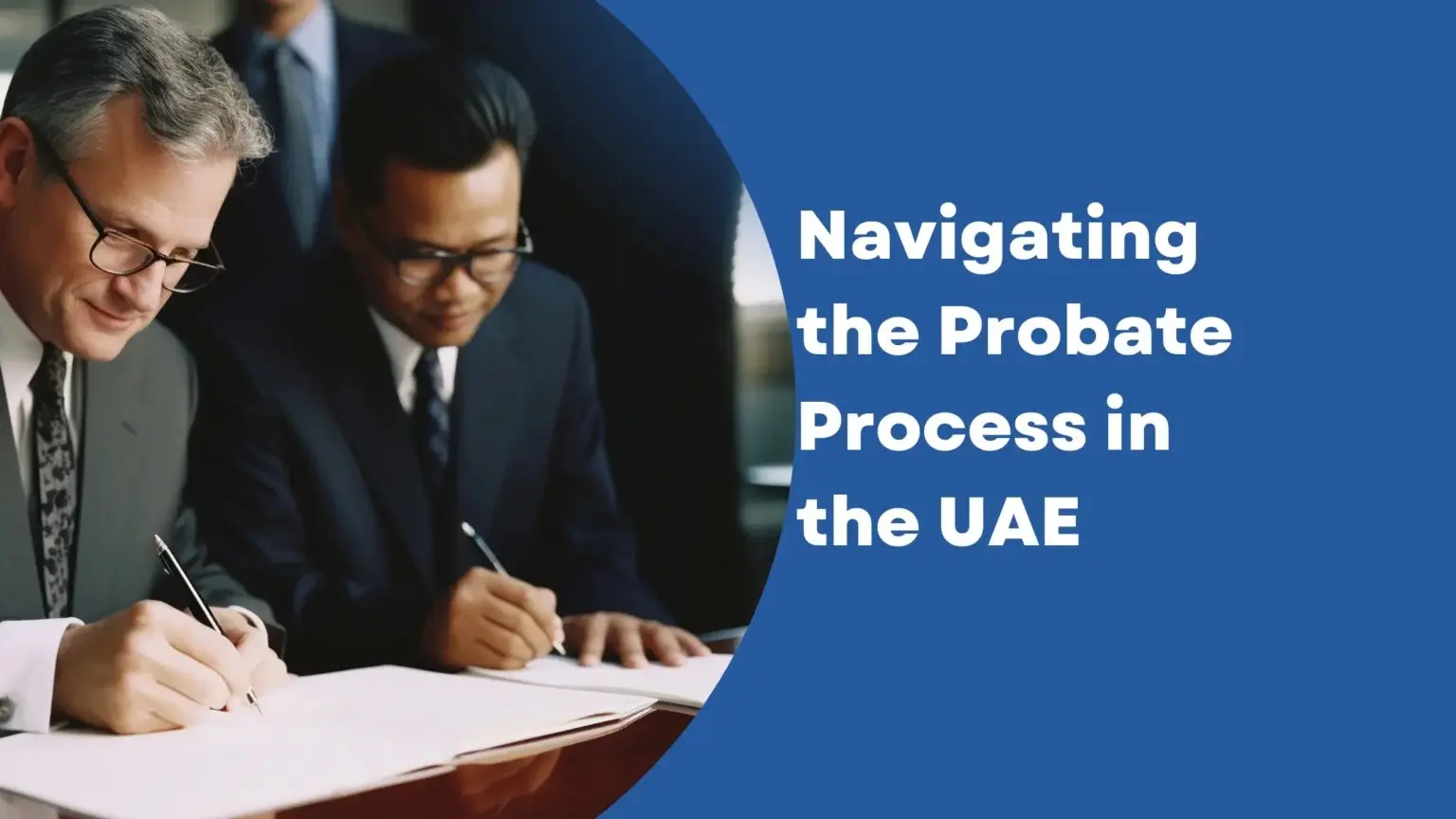Get In Touch
Leave your number and details below and we will call you right away!

For expats in the UAE, the absence of a legally registered will can lead to complexities during the probate process. If a person passes away without a will, their estate including bank accounts, vehicles, property, investments, and custody of children is distributed according to UAE inheritance laws, which follow Sharia principles by default. This may not align with the wishes of the deceased, especially for non-Muslim expats, making it crucial to understand the implications and plan accordingly.
What Happens Without a Will?
When someone dies intestate (without a will) in the UAE, the following processes typically apply:
Bank Accounts: Upon the account holder's death, all bank accounts, including joint accounts, are frozen until the probate process concludes. This can leave dependents without immediate access to funds, causing financial strain.
Vehicles: Cars and other movable assets are part of the estate and require formal documentation to transfer ownership. Without a will, the process can be delayed and may not reflect the deceased’s preferences. It might take few months to a year for the ownership of the vehicle to be transferred to heirs – spouse, kids, and parents of the deceased. In this case, the heirs might even have a hard time selling the vehicle, if needed.
Real Estate Property: Properties owned in the UAE are subject to Sharia law in the absence of a will. This means the property is divided among heirs according to specific shares, which may not align with the family's wishes.
Investments and Shares: Investments, stocks, and business shares are also subject to division under Sharia law. If the deceased was a business owner, the lack of clear directives could disrupt business operations.
Custody of Children: For expat families, custody of minor children can become a significant concern. Under Sharia law, guardianship may default to the next male relative, which might not align with the deceased's or surviving spouse's wishes.
Why Registering a Will is Crucial
By registering a will in the UAE, expats can:
Ensure the Smooth Distribution of Assets: A will allows you to specify how your assets, such as bank accounts, properties, and investments, should be distributed, avoiding delays and disputes.
Secure Custody of Your Children: With a will, you can designate a guardian for your minor children, ensuring their future aligns with your wishes.
Prevent Legal Ambiguities: A will eliminates uncertainties and ensures that the probate process is carried out according to your directives rather than default laws.
Save Time and Reduce Stress for Your Family: The probate process with a registered will is significantly quicker and less burdensome, sparing your family unnecessary stress during a challenging time.
How Firm Advice Can Help
At Firm Advice, we specialize in will-writing and estate planning services tailored for expats in the UAE. Our comprehensive services include:
Custom Drafting of Wills: We work closely with you to create a will that reflects your personal and financial circumstances.
Legal Expertise: Our team ensures that your will is compliant with UAE laws and accurately registered with the appropriate authorities, such as the DIFC, Dubai Courts or ADJD.
Support Through the Probate Process: In cases where no will exists, we assist families in navigating the complex probate procedures, helping them resolve matters efficiently.
Virtual Consultations: We offer online consultations for added convenience, allowing you to complete the will-drafting and registration process from anywhere.
The probate process without a will can be lengthy, stressful, and unpredictable. Contact Firm Advice today to learn how we can help you draft a legally binding will and ensure peace of mind for you.